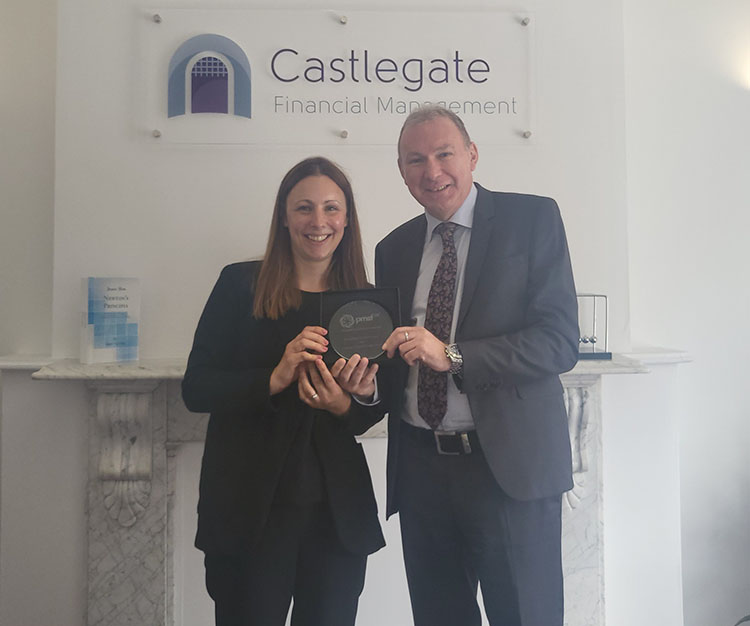UK recession risk eases – what it means for you
This content is for information purposes only and should not be taken as financial advice. Every effort has been made to ensure the information is correct and up-to-date at the time of writing. For personalised and regulated advice regarding your situation, please consult an independent financial adviser here at Castlegate in Grantham, Lincolnshire or other local offices.
The UK has narrowly avoided widespread predictions of a recession in the second quarter (Q2, April-June) of 2023. The economy grew by 0.2%. Is this cause for celebration? Does it mean that the UK is “out of the woods” now? What does this all mean for your finances?
Below, our Grantham financial planners offer some reflection on these important questions. We hope these insights are useful to you. To discuss your financial plan with us, please get in touch to arrange a no-obligation financial consultation, at our expense:
01476 855 585
info@casfin.co.uk
Has the UK really avoided a recession in 2023?
A recession, in technical terms, is defined as two consecutive quarters of negative economic growth. The UK economy unexpectedly shrank slightly in March 2023 (by 0.3%). As a whole, in Q1, the economy boasted a mere 0.1% growth rate.
What is immediately clear is that the UK economy can hardly be described as “full steam ahead” in light of these figures. Rather, it is hovering around a flatline. There are many explanations for why this might be.
One reason is high inflation (now 7.9%), which currently stands higher than most other G7 countries. Higher prices for goods and services across the economy reduce households’ spending power – making it harder for many firms to increase sales and profits from customers.
Another factor is tax rises. Tax, as a share of GDP, is now the highest in the UK since World War Two. Naturally, more money for the taxman means less money for households to spend at their discretion in the economy.
A third explanation is economic activity. In 2022, the participation rate amongst 15-64-year-olds in the labour force fell from 7th place in 2019 (out of 38 OECD countries) to 15th. This is partly due to a rise in long-term sickness since the pandemic.
Higher interest rates are also a factor – leading to higher mortgage payments and eroding disposable household income. What is notable is that many of the factors are persistent problems which are unlikely to be resolved soon.
For this reason, it is probably best to assume that the UK is not fully clear of a recession. It could still transpire in the coming months or years. So what should you do?
Take time to strengthen your plan
The time-honoured maxim “prepare for the worst; hope for the best” is a good principle to follow regarding UK recession risk. We all hope that inflation will fall, mortgages will become cheaper and living standards will rise. Yet, if they do not, it is good to have a plan ready.
A good first step is to build up your emergency fund, if at all possible (e.g. 3-6 months’ worth of living costs in easy-access savings). This helps you avoid needing to turn to credit if you face a large, unanticipated expense.
Credit cards and personal loans often become more costly when interest rates go up (as they have done in 2023). So it is wise to try and limit your use of them.
People in retirement may wish to check their investment strategy. Whilst a recession would not necessarily involve falling markets, it can dampen growth and exacerbate volatility in asset prices. Keep a long-term view with your portfolio and make sure that you are happy with your risk profile in light of your asset allocation.
If you own your home outright, then you will be shielded from many of the negative effects of higher interest rates on mortgages (which can be a major drain on household incomes).
In 2023, one byproduct of rising interest rates is that annuities have been achieving their highest rates since 2009. For those interested in a guaranteed retirement income (e.g. to help cover some essential costs) then now could be a good time to discuss with an adviser.
For those still paying off their mortgage and who are on a variable rate (or your deal is expiring soon), August 2023 could be a difficult time for deciding what to do.
Should you remortgage now to try and avoid “locking in” later when interest rates could be higher? Or, should you wait? First-time buyers looking to enter the market may also be nervous.
This is a very personal decision and it may help to seek professional advice. Each person will have different goals, attitudes to risk and financial circumstances which will bear heavily upon your choice(s). However, it is worth noting that interest rates are widely expected to keep rising.
Make sure you review your protection plan. If you have a mortgage, consider life insurance to pay the outstanding debt if you die before the maturity date. If you have a policy already, make sure that it is still up to date. Income protection and/or critical illness cover can be valuable too.
Invitation
If you are interested in discussing your own financial plan or investment strategy with us, please get in touch to arrange a no-commitment financial consultation at our expense:
01476 855 585
info@casfin.co.uk












